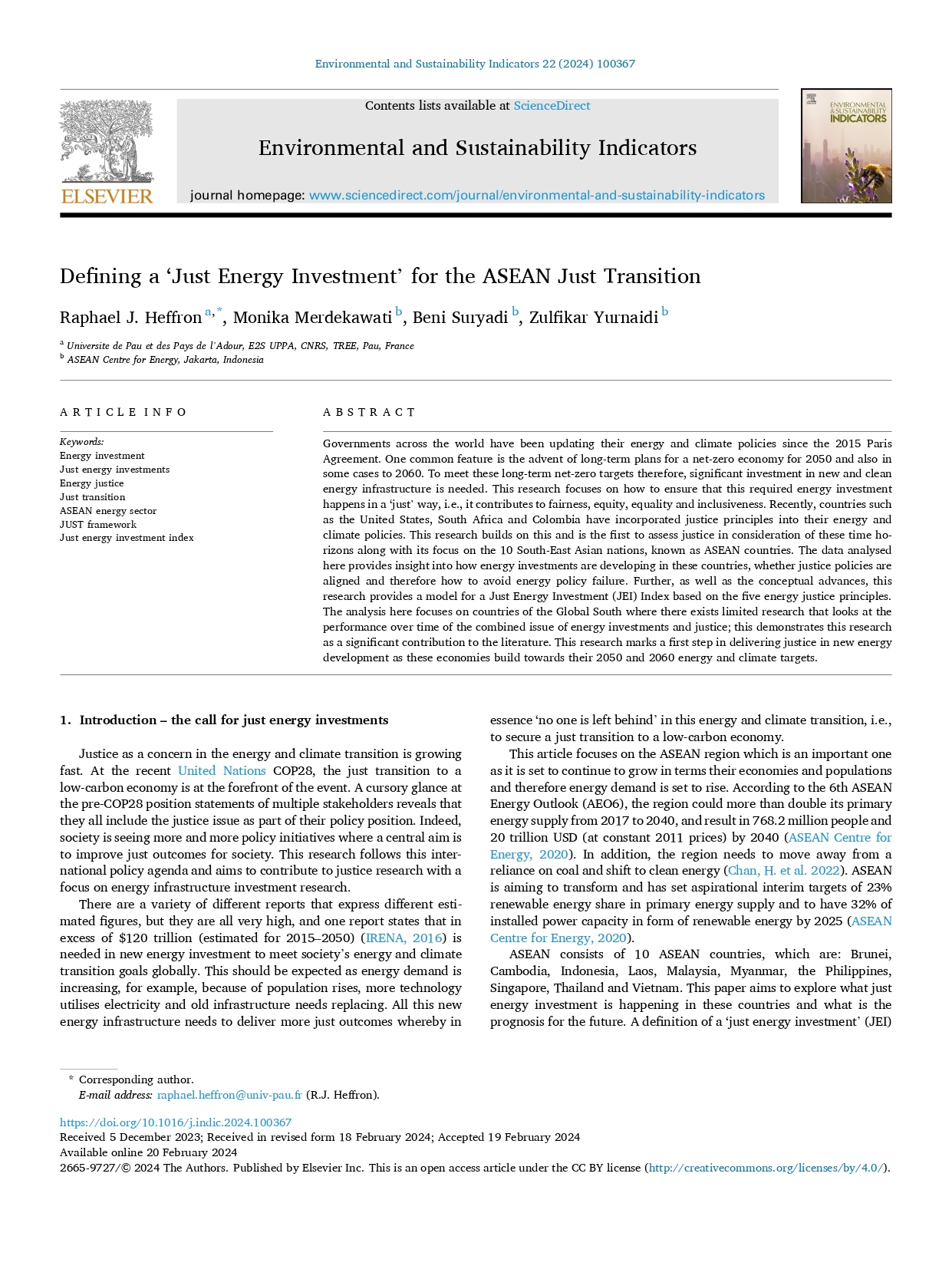
Keyword(s)
Author(s)
(a) Raphael J. Heffron, (b) Monika Merdekawati, (b) Beni Suryadi, (b) Zulfikar Yurnaidi
Country(ies)
Publisher
Published Date
Access
DOI
Governments across the world have been updating their energy and climate policies since the 2015 Paris Agreement. One common feature is the advent of long-term plans for a net-zero economy for 2050 and also in some cases to 2060. To meet these long term net-zero targets therefore, significant investment in new and clean energy infrastructure is needed. This research focuses on how to ensure that this required energy investment happens in a just way, i.e., it contributes to fairness, equity, equality and inclusiveness. Recently, countries such as the United States, South Africa and Colombia have incorporated justice principles into their energy and climate policies. This research builds on this and is the first to assess justice in consideration of these time horizons along with its focus on the 10 South-East Asian nations, known as ASEAN countries. The data analysed here provides insight into how energy investments are developing in these countries, whether justice policies are aligned and therefore how to avoid energy policy failure. Further, as well as the conceptual advances, this research provides a model for a Just Energy Investment (JEI) Index based on the five energy justice principles. The analysis here focuses on countries of the Global South where there exists limited research that looks at the performance over time of the combined issue of energy investments and justice; this demonstrates this research as a significant contribution to the literature. This research marks a first step in delivering justice in new energy development as these economies build towards their 2050 and 2060 energy and climate targets.